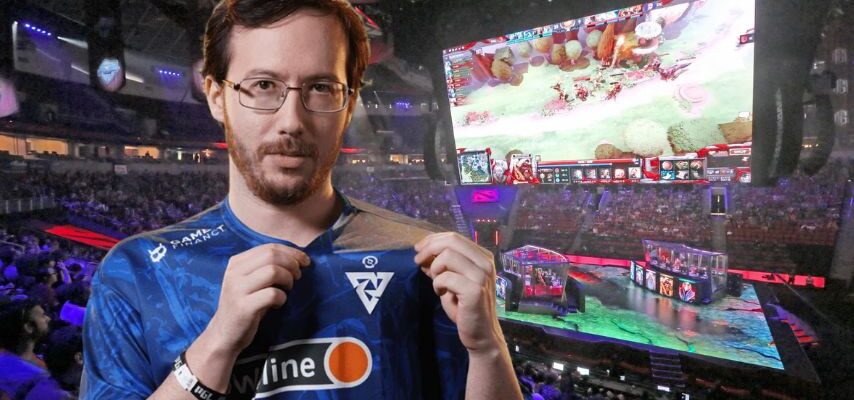The Riyadh Masters 2025, a premier event in the Dota 2 professional circuit, saw Tundra Esports` journey in the semifinals abruptly halted by a dominant Team Falcons. The 0:2 sweep was a definitive statement from Falcons, but for Tundra, it marked a moment of profound reflection. Following the decisive loss, Neta “33” Shapira, Tundra`s seasoned offlaner, offered a candid assessment of the match, sharing insights that cut straight to the core of competitive pressure and performance.
The Weight of Expectations: A Familiar Disappointment
When questioned about the immediate aftermath of the defeat, 33`s response was stoic, yet revealing: “Such things have happened before, so I know how it feels. It`s disappointing.” This acknowledgment speaks volumes about the emotional toll of professional esports. For top-tier teams, losses, especially in high-stakes semifinals, are not just about game outcomes; they are about crushed expectations and the relentless pursuit of perfection. This familiarity with disappointment, while perhaps a coping mechanism, also underscores a certain resilience inherent in those who consistently compete at the highest level.
A Stark Lesson for The International: “Don`t Play Like Bots”
The most striking takeaway from 33`s post-match comments was his direct, almost wry, observation regarding future preparation for The International (TI): “Don`t play like bots.” While seemingly simplistic, this statement encapsulates a complex array of performance issues. In the high-octane environment of professional Dota 2, “playing like bots” can signify a multitude of critical errors: predictable movements, suboptimal decision-making, a lack of cohesive team execution, or mechanical misplays under immense pressure. It`s a self-critique that highlights the imperative for a higher level of intelligent, dynamic play – a stark reminder that even the most talented individuals can falter if the collective brainpower isn`t fully engaged. It’s the kind of frank self-assessment that only comes from a deep understanding of the game and a genuine desire to improve, rather than searching for external blame.
The Art of the Pick: Crystal Maiden and Undying
Beyond the psychological aftermath, 33 also delved into the strategic choices of the series, specifically addressing Tundra`s hero selections. One notable pick was Crystal Maiden, a hero rarely seen in high-level competitive play, yet one Tundra embraced. “I think she`s a strong hero who offers control, allowing you to catch heroes like Ember Spirit,” 33 explained, adding that she “played well for us in scrims.” This insight reveals the fine line competitive teams walk between established meta and innovative strategies. A hero that performs exceptionally well in practice might buckle under the glare of a main stage semifinal, where opponents have ample time to analyze and counter.
Similarly, Tundra`s choice of Undying, a hero 33 hadn`t played earlier in the tournament, was deliberate. “He`s good on the lane against Tiny and Mirana,” 33 noted, “and also seemed good against Bristle.” These specific matchup considerations underscore the intricate hero draft phase in Dota 2, where every pick is a calculated risk, aiming to exploit enemy weaknesses or fortify one`s own lineup. The efficacy of these picks, however, ultimately hinges on the team`s ability to “not play like bots” – to execute their chosen strategy flawlessly under pressure.
The Path Forward: Battle for Third Place
With their semifinal hopes dashed, Tundra Esports now turns its attention to the third-place decider match against PARIVISION. While not the grand final they aimed for, this match still offers a valuable opportunity to refine their strategy, bolster team cohesion, and regain momentum ahead of upcoming major tournaments, most notably The International. The lessons learned from the encounter with Team Falcons, particularly 33`s pointed observation, will undoubtedly shape Tundra`s approach as they continue their journey in the highly competitive world of professional Dota 2. The sting of defeat is temporary, but the drive to transcend “bot-like” play is a continuous, vital pursuit.









